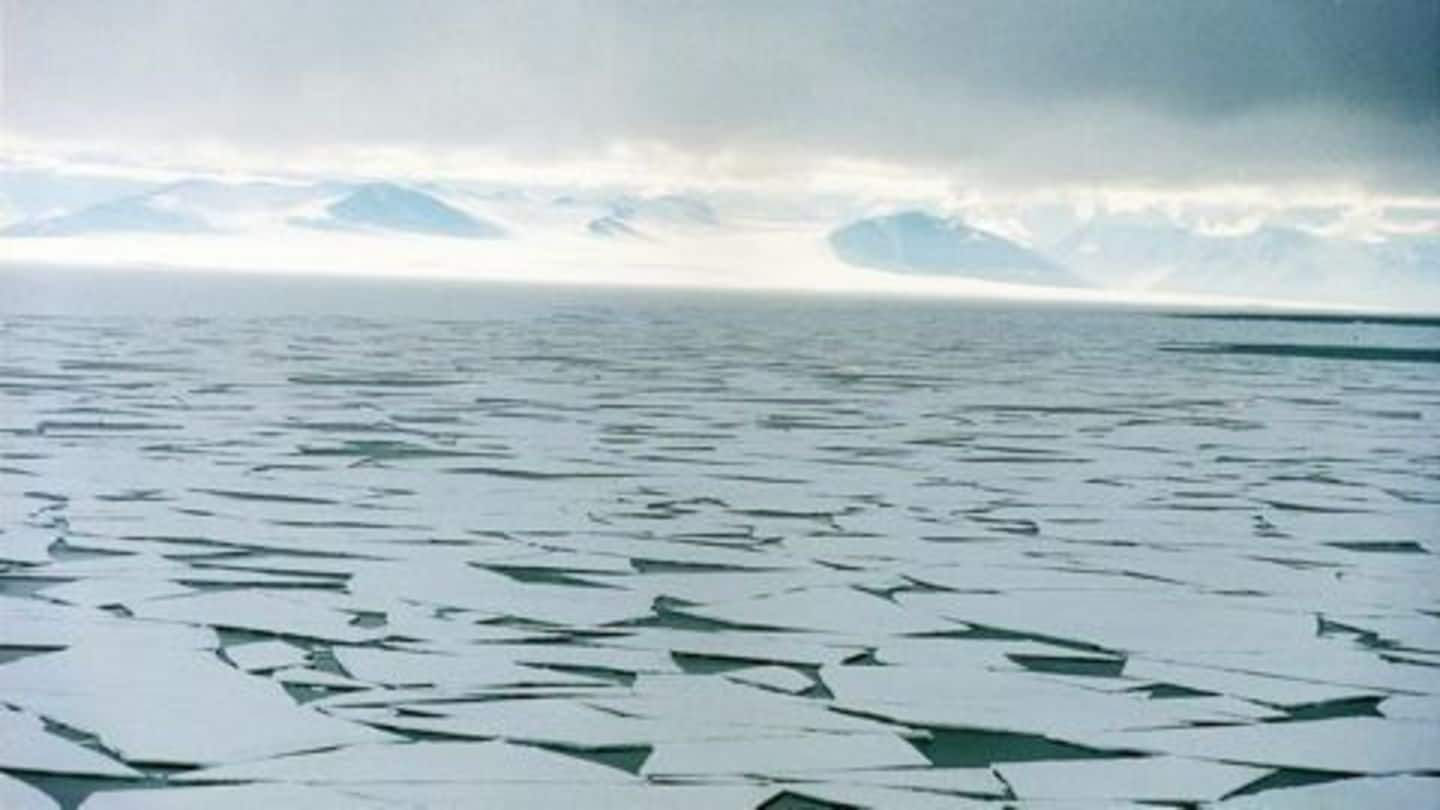
World's largest marine protected area declared in Antarctic Ocean
What's the story
Delegates from the European-Union and 24 nations have agreed to create the world's largest marine protected area in Antarctica's Ross Sea. Nearly 1.57 million sq-km of the Southern Ocean would be protected for 35 years from commercial fishing. Environmentalists welcomed the move to protect the world's most "pristine" marine ecosystem and hoped it would be the first of many such zones in international waters.
Information
What are marine protected areas?
Protected areas of oceans, seas, or large lakes are called marine protected areas (MPAs). They restrict human activity for conservation, to protect natural or cultural resources. They are protected by local, native, state, territorial, regional, or national authorities.
Quote
Named after Sir James Clark Ross
The Ross Sea is named after Sir James Clark Ross. Phillipa Ross, great, great, great granddaughter to Sir Ross stated: "The Ross family are euphoric that our family legacy has been honored in the 175th anniversary year since James first discovered the Ross Sea."
Unanimous decision
Unanimous decision to designate Ross Sea as an MPA
At a meeting in Hobart, Australia, Commission for the Conservation of Antarctic Marine Living Resources (CCAMLR) unanimously agreed to designate Ross Sea as an MPA. The Sea, its shelf, and slope comprise only 2% of the Antarctic Ocean but are home to over 10,000 species and nearly 38% of Adelie penguins, 30% of Antarctic petrels, and 6% of Antarctic Minke whales in the world.
Quote
First large-scale MPA
UN Patron for the Oceans Lewis Pugh stated: "I'm absolutely overjoyed. This is the biggest protected area on the land or the sea, this is the first large-scale MPA on the high seas, they are largely unprotected." He has campaigned for years for this MPA.
Ross Sea
Ross Sea important for the rest of the planet
The Ross Sea is critical as the upwelling of nutrients from its deep waters are carried on currents to the rest of the world. It is home to huge numbers of krill, the staple food for several species including seals and whales. Krill oil has several uses and is critical for salmon farming. However, overfishing and climate change significantly impacted the numbers of krill.
Information
A "no-take" zone
With the MPA designation, the Ross Sea would be turned into a "no-take" zone where nothing, including minerals and marine life, can be removed. However, as a part of a compromise, fishing krill, and toothfish for research purposes would be allowed from special zones.
Delay
Russia designates 2017 as "Year of Ecology"
At the negotiations held in 2015, Russia was the only country to hold out against the Ross Sea consensus. Lewis Pugh, in a series of meetings, convinced Russian officials of the value of the MPA. This year, Russia agreed; also, Russian President Vladimir Putin designated 2017 as "Year of Ecology". Russia recently expanded an MPA around the Arctic's Franz Josef Land.
Data
An issue about justice
On the MPA designation, Lewis Hugh said: "For me, this is an issue about justice - justice between generations. There seems to be something fundamentally wrong with us destroying our oceans, so our children and grandchildren have absolutely nothing."
Key Issues
How long the MPA should last?
One of the key issues raised in the negotiations this year was how long the MPA would last. China has reportedly stated that it believes 20 years is long enough for an MPA designation. Several conversationalists and campaigners said 20 years is way too short, given the lifespan of the creatures living in the Ross Sea, like whales. However, parties agreed on 35 years.